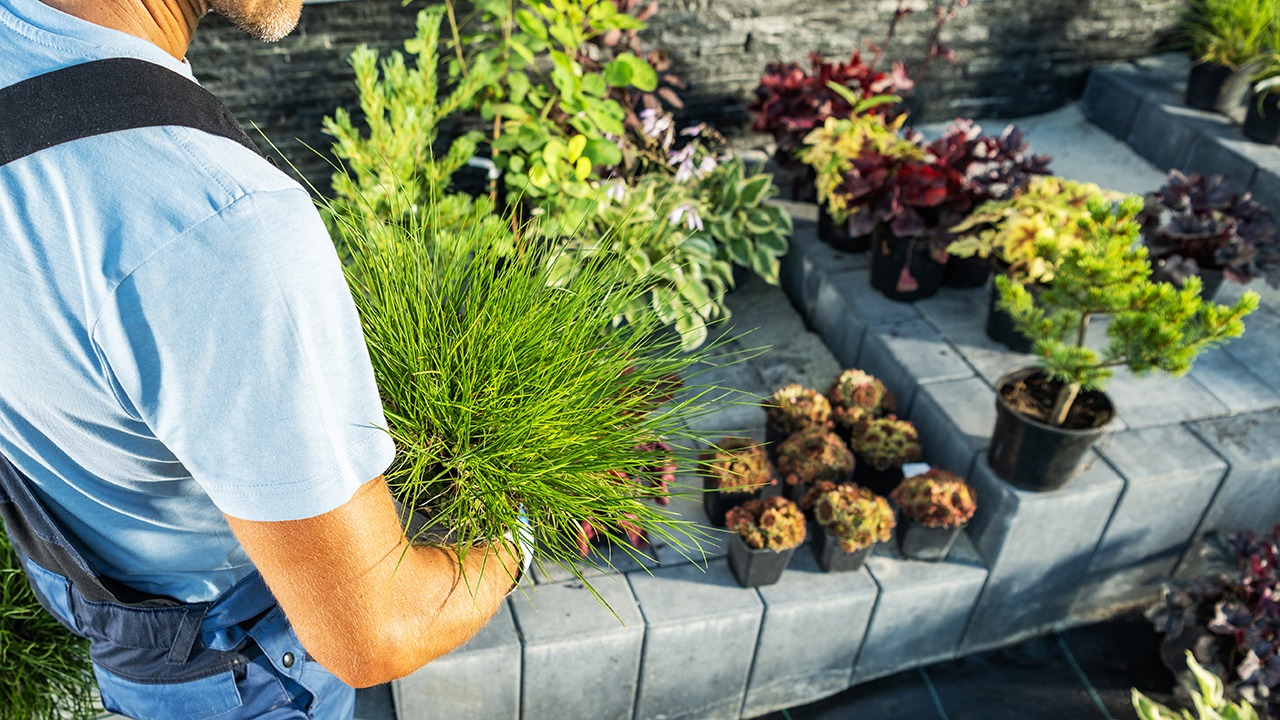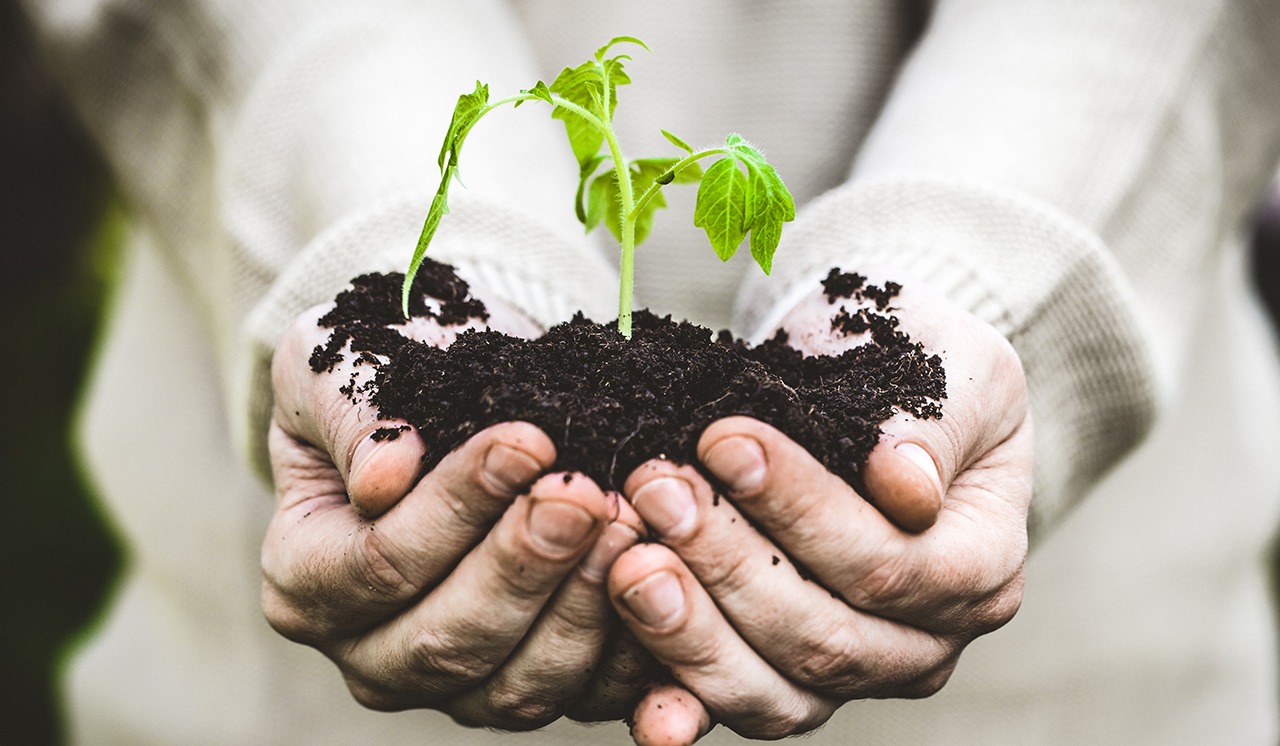
Exploring Eco Landscaping: A Sustainable Path to a Greener Tomorrow
In today’s world, where environmental concerns are taking center stage, the concept of eco landscaping is gaining significant attention.
Eco landscaping, short for ecological landscaping, is an innovative approach to designing, creating, and maintaining outdoor spaces that prioritize sustainability, biodiversity, and environmental health. It’s a harmonious blend of art and science, where the beauty of nature meets the principles of ecology.
Let’s go on a journey through the world of eco landscaping, shedding light on its definition, key principles, benefits, and how you can incorporate it into your own outdoor spaces.
Whether you’re a passionate gardener, a homeowner looking to enhance your property, or simply a nature enthusiast, you’ll discover how eco landscaping can help you contribute to a more sustainable and greener world.
Understanding Eco Landscaping
Eco landscaping, at its core, is an approach that seeks to create outdoor environments that function in harmony with nature. It goes beyond the conventional idea of a well-manicured lawn or a garden filled with non-native, water-thirsty plants.
Instead, it embraces nature’s wisdom, utilizing native plants, ecological systems, and sustainable practices to create landscapes that are both aesthetically pleasing and ecologically sound.
Key Principles of Eco Landscaping
Eco landscaping is guided by a set of principles that help ensure its sustainability and environmental friendliness.
Let’s delve into these key principles:
- Native Plants: One of the fundamental principles of eco landscaping is the use of native plants. Native plants are species that naturally occur in a specific region and have evolved to thrive in local conditions. Using native plants in your landscaping not only supports biodiversity but also requires less water, maintenance, and chemical intervention compared to non-native plants.
- Biodiversity: Eco landscaping aims to create and support a diverse range of plant and animal species. By providing a variety of plants and habitats, you can attract beneficial insects, birds, and other wildlife, which contribute to a healthy ecosystem and help control pests naturally.
- Soil Health: Healthy soil is the foundation of any successful landscape. Eco landscaping practices focus on improving soil health through techniques like composting, mulching, and minimizing soil disturbance. Healthy soil provides better nutrition for plants, increases water retention, and reduces the need for synthetic fertilizers.
- Water Conservation: In a world where water is a precious resource, eco landscaping prioritizes water conservation. Practices such as rainwater harvesting, using drought-tolerant plants, and efficient irrigation systems help reduce water usage and prevent water waste.
- Chemical-Free Maintenance: Eco landscaping discourages the use of synthetic chemicals like pesticides and herbicides, as these can harm the environment and disrupt the natural balance. Instead, eco landscapers rely on natural pest control methods and selective planting to minimize pest issues.
- Wildlife Habitat: Designing landscapes that provide food, shelter, and water for local wildlife is an essential element of eco landscaping. Birdhouses, bee-friendly plants, and water features can turn your outdoor space into a haven for biodiversity.

Benefits of Eco Landscaping
Now that we understand the core principles of eco landscaping, let’s explore the myriad of benefits it offers:
Environmental Benefits
- Reduced Environmental Impact: Eco landscaping practices reduce the need for chemical fertilizers, pesticides, and excessive water usage, which lessens the environmental impact of traditional landscaping.
- Enhanced Biodiversity: By using native plants and creating diverse habitats, eco landscaping contributes to the preservation of local flora and fauna, which is crucial for a balanced ecosystem.
- Improved Soil Quality: Eco landscaping improves soil health, leading to better water retention, erosion control, and reduced soil pollution.
Economic Benefits
- Lower Maintenance Costs: Eco landscapes generally require less maintenance and lower input costs due to reduced water usage, minimal chemical interventions, and healthier plants.
- Increased Property Value: A well-designed eco landscape can add value to your property, as many homebuyers and renters are increasingly interested in environmentally friendly outdoor spaces.
Health Benefits
- Clean Air and Water: Eco landscaping helps improve air quality by reducing the need for gas-powered equipment and chemical treatments. It also reduces runoff, which can contaminate local water sources.
- Mental and Physical Well-being: Spending time in eco landscapes with natural elements has been shown to reduce stress, improve mental health, and promote physical activity.
Aesthetic Benefits
- Natural Beauty: Eco landscapes are characterized by their natural, wild beauty, which often appeals to those seeking a more serene and harmonious outdoor space.
- Seasonal Interest: Native plants in eco landscapes can provide interest throughout the year, with various plants blooming and attracting wildlife during different seasons.

Incorporating Eco Landscaping into Your Space
Now that we’ve uncovered the essence of eco landscaping and its many advantages, you may be wondering how to incorporate these principles into your own outdoor spaces.
Here are some practical steps to help you get started:
- Assess Your Site: Begin by assessing your site's unique characteristics, such as soil type, sun exposure, and climate. This will help you select the right native plants and design a landscape that suits your environment.
- Choose Native Plants: Research and select native plants that are well-suited to your region. Consider factors like bloom times, wildlife attraction, and maintenance requirements when making your choices.
- Create Wildlife Habitats: Incorporate elements that attract and support local wildlife, such as bird feeders, bee-friendly plants, butterfly gardens, and water features.
- Reduce Lawn Size: Consider reducing the size of your lawn, or even eliminating it altogether, and replace it with native plantings or natural meadows. Lawns are typically resource-intensive and can be less ecologically beneficial.
- Mulch and Compost: Use organic mulch to reduce weed growth and improve soil health. Composting kitchen scraps and yard waste will enrich your soil and reduce the need for chemical fertilizers.
- Rainwater Harvesting: Collect rainwater from your roof to use for irrigation. Rain barrels or a more sophisticated rainwater harvesting system can be installed to capture and store water for drier periods.
- Eco-Friendly Hardscape: When incorporating paths, patios, or other hardscape elements, choose permeable materials that allow rainwater to infiltrate the ground, reducing runoff.
- Sustainable Maintenance: Adopt sustainable maintenance practices, such as hand weeding, selective pruning, and using natural predators for pest control.
- Education and Awareness: Share your eco landscaping journey with others, whether it's through a neighborhood garden tour, community workshops, or online platforms. Encouraging others to adopt eco-friendly practices can have a ripple effect.
Embrace Eco Landscaping for a Greener Tomorrow
Eco landscaping represents a significant shift in how we approach outdoor spaces. It allows us to enjoy attractive, functional landscapes while conserving resources, promoting biodiversity, and protecting the environment.
By embracing principles like native plants, biodiversity, soil health, water conservation, and chemical-free maintenance, we can create sustainable ecosystems with benefits spanning environmental health, cost savings, and personal well-being.
If you’re ready to contribute to a more sustainable future, whether you have a small garden, a spacious yard, or even a balcony, consider eco landscaping.
Reach out to our dedicated eco landscaping professionals to transform your outdoor space into a thriving, sustainable haven that benefits you and the planet. Join the eco landscaping movement and help build a greener, happier world today!
